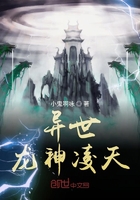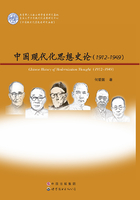It is but six months since Polish Patriotism, so effulgent to its own eyes in Orthodoxy, in Love of glorious Liberty, confederated at Bar, and got into that extraordinary whirlpool, or cesspool, of miseries and deliriums we have been looking at; and now it has issued on a broad highway of progress,--broad and precipitous,--and will rapidly arrive at the goal set before it. All was so rapid, on the Polish and on the Turkish part. The blind Turks, out of mere fanaticism and heat of humor, have rushed into this adventure;--and go rushing forward into a series of chaotic platitudes on the huge scale, and mere tragical disasters, year after year, which would have been comical, had they not been so hideous and sanguinary:
constant and enormous blunders on the Turk part, issuing in disasters of like magnitude; which in the course of Two Campaigns had quite finished off their Polish friends, in a very unexpected way; and had like to have finished themselves off, had not drowned Poland served as a stepping-stone.
Not till March 26th, 1769, six months after declaring in such haste, did the blind Turks "display their Banner of Mahomet," that is, begin in earnest to assemble and make ready. Nor were the Russians shiningly strategic, though sooner in the field,--a Prince Galitzin commanding them (an extremely purblind person);till replaced by Romanzow, our old Colberg acquaintance, who saw considerably better. Galitzin, early in the season, made a rush on Choczim (ChoTzim), the first Turk Fort beyond the Dniester;and altogether failed,--not by Turk prowess, but by his own purblind mal-arrangements (want of ammunition, want of bread, or Iwill forget what);--which occasioned mighty grumblings in Russia:
till in a month or two, by favor of Fortune and blindness of the Turk, matters had come well round again; and Galitzin, walking up to Choczim the second time, found there was not a Turk in the place, and that Choczim was now his on those uncommonly easy terms!
Instead of farther details on such a War,--the shadow or reflex of which, as mirrored in the Austrian mind, has an importance to Friedrich and us; but the self or substance of which has otherwise little or none,--we will close here with a bit of Russian satire on it, which is still worth reading. The date is evidently Spring, 1769; the scene what we are now treating of: Galitzin obliged to fall back from Choczim; great rumor--"What a Galitzin; what a Turk War his, in contrast to the last we had!" [Turk War of 1736-1739, under Munnich (supra, vii. 81-126).]--no Romanzow yet appointed in his room. And here is a small Manuscript, which was then circulating fresh and new in Russian Society; and has since gone over all the world (though mostly in an uncertain condition, in old Jest-Books and the like), as a genuine bit of CAVIARE from those Northern parts:--MANUSCRIPT CIRCULATING IN RUSSIAN SOCIETY. Galitzin, much grieved about Choczim, could not sleep; and, wandering about in his tent, overheard, one night, a common soldier recounting his dream to the sentry outside the door.
"A curious dream," said the soldier: "I dreamt I was in a battle;that I got my head cut off; that I died; and, of course, went to Heaven. I knocked at the door: Peter came with a bunch of Keys;and made such rattling that he awoke God; who started up in haste, asking, 'What is the matter?' 'Why,' says Peter, 'there is a great War on earth between the Russians and the Turks.' 'And who commands my Russians?' said the Supreme Being. 'Count Munnich,' answered Peter. 'Very well; I may go to sleep again!'--But this was not the end of my dream," continued the soldier; "I fell asleep and dreamt again, the very same as before, except that the War was not Count Munnich's, but the one we are now in. Accordingly, when God asked, 'Who commands my Russians?' Peter answered, 'Prince Galitzin.'
'Galitzin? Then get me my boots!' said the [Russian] Supreme Being." [W. Richardson (then at Petersburg, Tutor to Excellency Cathcart's Children; afterwards Professor at Glasgow, and a man of Some reputation in his old age), <italic> Anecdotes of the Russian Empire, in a Series of Letters written a few years ago from St.
Petersburg <end italic> (London, 1784), p. 110: date of this Letter is "17th October, 1769."]
Chapter IV.
PARTITION OF POLAND.
These Polish phenomena were beginning to awaken a good deal of attention, not all of it pleasant, on the part of Friedrich.
From the first he had, as usual, been a most clear-eyed observer of everything; and found the business, as appears, not of tragical nature, but of expensive-farcical, capable to shake the diaphragm rather than touch the heart of a reflective on-looker. He has a considerable Poem on it,--WAR OF THE CONFEDERATES by title (in the old style of the PALLADION, imitating an unattainable JEANNED'ARC),--considerable Poem, now forming itself at leisure in his thoughts, ["LA GUERRE DES CONFEDERES [<italic> OEuvres, <end italic> xiv. 183 et seq.], finished in November, 1771."] which decidedly takes that turn; and laughs quite loud at the rabid fanaticisms, blusterous inanities and imbecilities of these noisy unfortunate neighbors:--old unpleasant style of the PALLADION and PUCELLE; but much better worth reading; having a great deal of sharp sense in its laughing guise, and more of real Historical Discernment than you will find in any other Book on that delirious subject.
Much a laughing-stock to this King hitherto, such a "War of the Confederates,"--consisting of the noisiest, emptiest bedlam tumults, seasoned by a proportion of homicide, and a great deal of battery and arson. But now, with a Russian-Turk War springing from it, or already sprung, there are quite serious aspects rising amid the laughable. By Treaty, this War is to cost the King either a 12,000 of Auxiliaries to the Czarina, or a 72,000 pounds (480,000thalers) annually; [<italic> OEuvres de Frederic, <end italic>
vi. 13.]--which latter he prefers to pay her, as the alternative:















